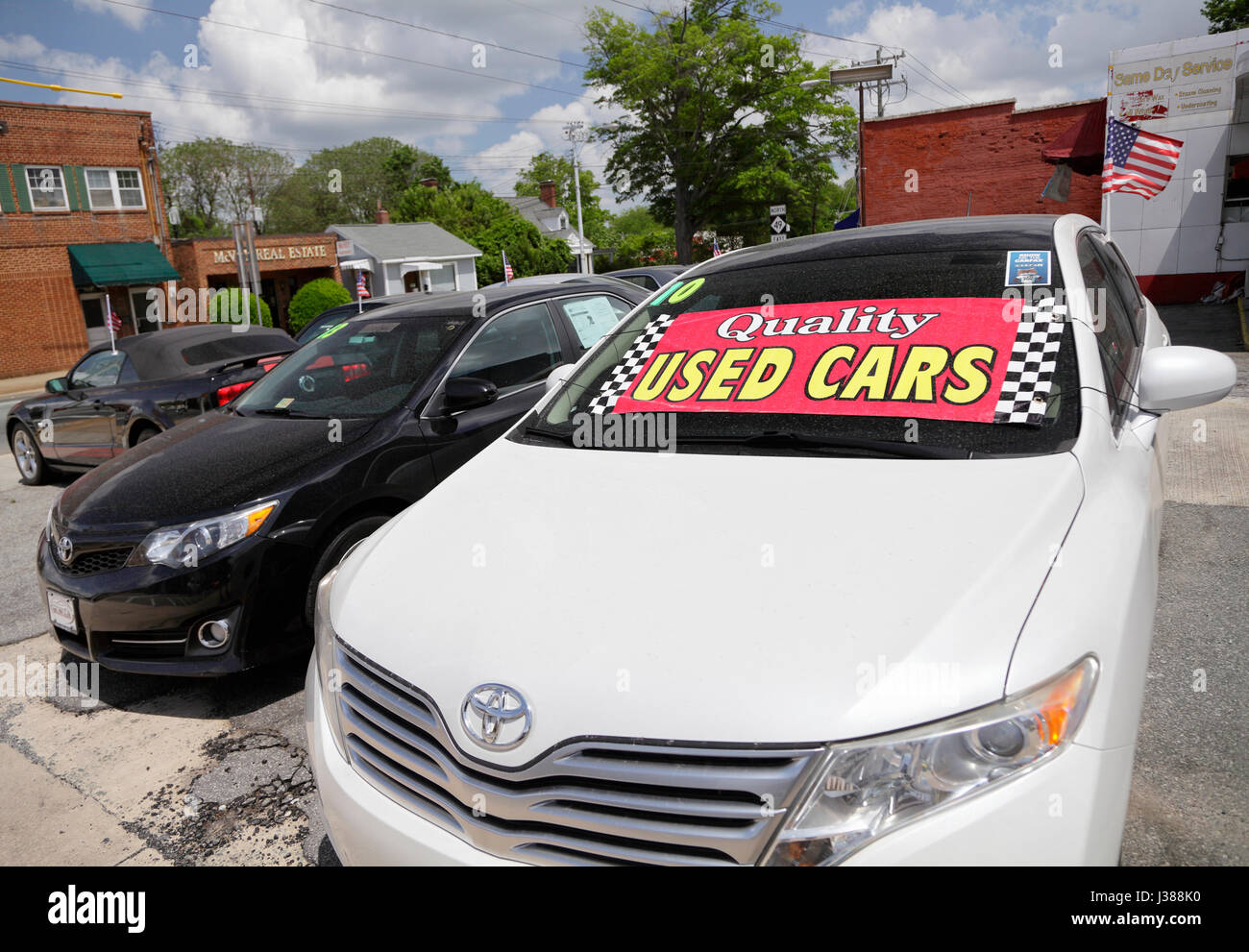Used Dodge Diesel Pickup Trucks For Sale: A Comprehensive Buyer’s Guide pickup.truckstrend.com
Introduction: Unlocking the Power of a Pre-Owned Legend
For decades, the Dodge (now Ram) diesel pickup truck has been synonymous with raw power, legendary durability, and uncompromising towing capability. At the heart of this reputation lies the Cummins turbo-diesel engine, a powerhouse renowned for its longevity and immense torque output. Consequently, used Dodge diesel pickup trucks for sale represent a highly sought-after segment of the pre-owned vehicle market.
Used Dodge Diesel Pickup Trucks For Sale: A Comprehensive Buyer’s Guide
Choosing a used Dodge diesel isn’t just about saving money; it’s about investing in a proven workhorse that can handle the toughest jobs, from hauling heavy trailers to navigating challenging terrain, all while offering a driving experience that blends rugged utility with surprising comfort. This comprehensive guide aims to equip prospective buyers with the knowledge and insights needed to confidently navigate the market for a used Dodge diesel pickup, ensuring a smart and satisfying purchase. Whether you’re a contractor needing a reliable hauler, an RVer seeking towing prowess, or simply someone who appreciates robust engineering, a used Cummins-powered Dodge might be your ideal truck.
Why Choose a Used Dodge Diesel? The Cummins Advantage
The primary reason for the enduring appeal of used Dodge diesel pickups is undoubtedly the Cummins engine. Unlike other domestic manufacturers who design and build their own diesel engines in-house, Dodge partnered with Cummins Inc., a global leader in diesel engine manufacturing. This partnership has yielded some of the most robust and long-lasting engines ever put into a pickup truck.
Key Benefits of the Cummins Engine:
- Legendary Durability and Longevity: Cummins engines are known for their ability to rack up hundreds of thousands of miles, often exceeding 500,000 miles with proper maintenance. Their heavy-duty construction, including a cast-iron block and robust internal components, ensures they can withstand the rigors of heavy use.
- Unmatched Torque: Diesel engines inherently produce more torque than gasoline engines, and the Cummins is no exception. This massive torque is crucial for effortless towing and hauling, allowing the truck to pull heavy loads with minimal strain.
- Fuel Efficiency (for its class): While heavy-duty trucks are not known for their fuel economy, diesel engines generally offer better mileage than their gasoline counterparts, especially when under load. The Cummins engine’s efficient design helps offset the higher cost of diesel fuel.
- Strong Resale Value: Due to their reputation for reliability and longevity, used Dodge diesel trucks tend to hold their value exceptionally well, making them a sound investment.
- Simplicity (Older Models): Early Cummins engines, particularly the 12-valve 5.9L, are mechanically simpler with fewer electronic components, making them easier and often cheaper to maintain and repair for those with mechanical aptitude.
- Power and Performance: Over the generations, Cummins engines have continually evolved, offering increasing horsepower and torque, allowing even older models to deliver impressive performance figures.

By choosing a used Dodge diesel, you’re not just buying a truck; you’re buying into a legacy of power, dependability, and a dedicated community of enthusiasts who appreciate the Cummins difference.

Key Generations and Models to Consider
Dodge/Ram diesel pickups have evolved significantly over the years. Understanding the different generations and their characteristics is vital for making an informed decision.
-
Second Generation (1994-2002): The Classic Workhorse

- Engines: Primarily the 5.9L 12-valve (1994-1998.5) and 5.9L 24-valve (1998.5-2002) Cummins. The 12-valve is revered for its mechanical simplicity and robust nature, often favored by those seeking easy maintenance and power modifications. The 24-valve introduced more electronics but still offered strong performance.
- Pros: Rugged, simple design, strong engines, often lower purchase price.
- Cons: Dated interiors, prone to rust in certain areas, some specific engine/transmission issues (e.g., "Killer Dowel Pin" in 12v, 53 block in early 24v, automatic transmission weaknesses).
- Ideal for: Budget-conscious buyers, those who value mechanical simplicity, or those looking for a project truck.
-
Third Generation (2003-2009): Modernization Begins
- Engines: Started with the 5.9L common-rail Cummins (2003-2007.5), then transitioned to the 6.7L Cummins (2007.5-2009). The 5.9L common-rail is highly regarded for its blend of power, efficiency, and relative simplicity compared to later emissions-equipped engines. The 6.7L introduced more power but also emissions equipment (DPF).
- Pros: Improved interiors, better ride quality, stronger frames, still very reliable engines (especially the 5.9L).
- Cons: Early 6.7L engines can have DPF (Diesel Particulate Filter) issues if not properly maintained or driven, some injector pump issues on early 5.9L common rail.
- Ideal for: Buyers seeking a more refined truck than the 2nd Gen, with excellent power and towing, without the complexity of modern emissions systems (if choosing the 5.9L).
-
Fourth Generation (2010-2018): Refinement and Increased Capability
- Engines: 6.7L Cummins (continuously improved).
- Pros: Significantly improved interiors, quieter cabin, higher towing and payload capacities, more advanced technology features, comfortable ride.
- Cons: More complex emissions systems (DPF, SCR, DEF fluid), which can lead to higher maintenance costs if not properly cared for.
- Ideal for: Those needing serious towing/hauling capabilities, desiring modern comfort and features, and willing to manage emissions system maintenance.
-
Fifth Generation (2019-Present): The Latest and Most Capable
- Engines: 6.7L Cummins (High Output option available).
- Pros: Cutting-edge technology, luxurious interiors (especially higher trims), highest towing and payload capacities to date, vastly improved ride and handling.
- Cons: Still very new in the used market, so prices remain high. All the complexities of modern emissions systems.
- Ideal for: Buyers seeking the latest in truck technology, highest capacities, and a premium experience, with a larger budget.
Model Variations: Within each generation, consider whether you need a 2500 (3/4-ton) or 3500 (1-ton) model. The 3500 offers higher payload and towing capacities, often with dual rear wheels (dually) for increased stability. Trim levels (Tradesman, SLT, Laramie, Longhorn, Limited) also dictate interior features, luxury, and price.
What to Look For When Buying: Important Considerations
Purchasing a used diesel truck requires a keen eye and thorough inspection. Here’s a checklist of critical areas:
-
Mechanical Inspection (Professional is Best):
- Engine: Listen for unusual noises (knocks, rattles, excessive clatter), check for oil or coolant leaks. Look for excessive white, black, or blue smoke from the exhaust. Check the condition of the turbocharger (no excessive shaft play).
- Transmission: Test all gears, ensuring smooth shifts without harshness or slipping. Check the transmission fluid for proper level and color (should not be dark or burnt smelling).
- Drivetrain: Inspect universal joints, differentials, and the transfer case for leaks or noises. Engage 4×4 if equipped.
- Suspension and Steering: Check for worn ball joints, tie rods, steering box play, and noisy shocks.
- Brakes: Look at pad and rotor wear. Ensure the truck stops straight and smoothly.
- Tires: Check tread depth and for uneven wear patterns, which can indicate alignment or suspension issues.
-
Common Issues by Generation:
- 2nd Gen (5.9L): Killer Dowel Pin (KDP – can cause catastrophic engine failure if not addressed), 53 block (certain 24v engines prone to cracking), automatic transmission failure (47RE/48RE).
- 3rd Gen (5.9L & 6.7L): Injector issues (especially early 6.7L), exhaust manifold cracking, DPF clogging/issues (6.7L).
- 4th/5th Gen (6.7L): Emissions system failures (DPF, SCR, DEF components), turbo issues, clogged EGR systems. These are complex and expensive to repair.
-
Rust: Inspect the frame, cab corners, rocker panels, wheel wells, and bed for rust, especially if buying from a region with harsh winters. Frame rust can compromise structural integrity.
-
Maintenance Records: This is paramount for a diesel truck. A well-maintained diesel is worth significantly more. Look for records of oil changes, fuel filter replacements, transmission services, and any major repairs.
-
Modifications: Be wary of heavily modified trucks. While some modifications (e.g., upgraded turbos, lift kits) can be beneficial, others (e.g., poorly done "emissions deletes" or aggressive tunes) can shorten engine life or lead to legal issues. Understand what mods are present and their implications.
-
Title and History Check: Always run a CarFax or AutoCheck report. This will reveal accident history, salvage titles, flood damage, odometer discrepancies, and previous ownership details.
Where to Find Used Dodge Diesel Pickups
- Online Marketplaces: Websites like AutoTrader, Cars.com, eBay Motors, and even Facebook Marketplace are excellent starting points. They offer a wide selection and allow for filtering by year, mileage, price, and features.
- Dealerships: Reputable used car dealerships often have a selection of diesel trucks. Ram dealerships sometimes take trade-ins, providing a potentially well-serviced option. Dealerships usually offer financing and warranties, though prices might be higher.
- Private Sellers: Buying directly from a private owner can often yield a better price, as there’s no dealer markup. However, it requires more vigilance on your part for inspection and history checks, as there are typically no warranties.
- Auctions: Government, fleet, and public auto auctions can offer great deals, but they are generally for experienced buyers as vehicles are sold "as-is" with little opportunity for thorough inspection.
Tips for a Successful Purchase
- Set a Realistic Budget: Beyond the purchase price, factor in potential maintenance, insurance, fuel costs, and any immediate repairs or upgrades. Diesel parts and labor are often more expensive than gasoline.
- Research Specific Years/Models: Once you’ve narrowed down your preferred generation, delve into online forums and owner groups to learn about specific quirks, common issues, and recommended maintenance for that exact year and engine combination.
- Test Drive Extensively: Don’t just drive around the block. Take the truck on the highway, through city traffic, and at various speeds. Listen for strange noises, feel for vibrations, and check all electrical components (lights, AC, radio, power windows). Test it cold and hot.
- Get a Pre-Purchase Inspection (PPI): This is the single most important tip. Take the truck to an independent, reputable diesel mechanic (not one associated with the seller) for a thorough inspection. They can identify issues you might miss and provide an estimate for repairs.
- Negotiate Confidently: Use any identified issues from your inspection as leverage for negotiation. Be prepared to walk away if the deal doesn’t feel right.
- Understand Ownership Costs: Diesel fuel is typically more expensive than gasoline. Maintenance, especially for emissions-equipped trucks, can be higher. Factor in the cost of DEF fluid if applicable.
Price Table: Estimated Used Dodge Diesel Pickup Truck Prices
Please note: These are estimated price ranges for good to excellent condition vehicles and can vary wildly based on mileage, trim level, 2WD/4WD, specific options, modifications, geographic location, and overall market demand. Trucks with lower mileage, desirable trim levels, or specific rare configurations will command higher prices.
| Generation / Year Range | Engine Type | Typical Mileage Range | Condition | Estimated Price Range (USD) | Key Features / Notes |
|---|---|---|---|---|---|
| 2nd Gen (1994-2002) | 5.9L 12-Valve | 150,000 – 300,000+ | Good | $8,000 – $18,000 | Mechanical simplicity, strong aftermarket. Higher value for clean, low-mod examples. |
| 5.9L 24-Valve | 150,000 – 280,000+ | Good | $7,000 – $17,000 | More electronics than 12v. | |
| 3rd Gen (2003-2007.5) | 5.9L Common Rail | 120,000 – 250,000+ | Good | $12,000 – $25,000 | Highly sought after, good balance of power/simplicity. |
| 3rd Gen (2007.5-2009) | 6.7L Cummins | 100,000 – 220,000+ | Good | $10,000 – $22,000 | First with DPF. |
| 4th Gen (2010-2012) | 6.7L Cummins | 90,000 – 180,000+ | Good | $15,000 – $28,000 | Improved interior, early 4th gen. |
| 4th Gen (2013-2018) | 6.7L Cummins | 60,000 – 150,000+ | Good | $20,000 – $40,000+ | Significant interior/exterior refresh (2013+). Higher trims can exceed this range. |
| 5th Gen (2019-2023) | 6.7L Cummins | 20,000 – 100,000+ | Excellent | $40,000 – $70,000+ | Latest tech, highest capabilities. Prices highly dependent on trim and options. |
(Note: "Good" condition implies well-maintained with normal wear and tear. "Excellent" implies near-new condition, possibly lower mileage for its age.)
Frequently Asked Questions (FAQ)
Q1: Are used Dodge diesels reliable?
A1: Yes, especially the Cummins engine itself. With consistent and proper maintenance, these trucks are known for their exceptional reliability and longevity. However, like any vehicle, specific components (transmissions, electronics, emissions systems on newer models) can have issues, which is why a thorough pre-purchase inspection is crucial.
Q2: What’s the "best" year for a used Dodge diesel?
A2: There’s no single "best" year; it depends on your priorities.
- For simplicity and mechanical reliability, many prefer the 1994-1998.5 12-valve 5.9L (2nd Gen).
- For a balance of modern features, power, and fewer emissions components, the 2003-2007.5 5.9L common-rail (3rd Gen) is highly regarded.
- For higher towing capacity, modern comfort, and advanced features, the 2013+ 6.7L (4th Gen) models are excellent, provided you understand the emissions system maintenance.
Q3: What should I budget for maintenance on a used diesel?
A3: Diesel maintenance is generally more expensive than gasoline vehicles. Expect higher costs for oil changes (more oil, specialized filters), fuel filter replacements (critical for injector longevity), and potential repairs for emissions components (DPF, DEF system) on 2007.5+ models. Budget a few hundred dollars annually for routine maintenance, and be prepared for potentially higher costs for major repairs.
Q4: Should I buy a used Dodge diesel with emissions deleted?
A4: "Emissions deletes" involve removing or disabling components like the DPF, EGR, and DEF system. While some owners do this for performance or to avoid maintenance costs, it’s illegal in most places and will cause the truck to fail emissions inspections. It can also void warranties and potentially reduce resale value to a broad market. Be aware of the legal and environmental implications.
Q5: How many miles are too many for a used Cummins?
A5: The Cummins engine is famous for its high mileage capabilities. It’s not uncommon to see them with 300,000 to 500,000 miles or more. Instead of focusing solely on mileage, prioritize consistent maintenance records, how the truck was used (towing vs. light duty), and the results of a professional pre-purchase inspection. A well-maintained 250,000-mile truck can be a better buy than a neglected 100,000-mile one.
Q6: What’s the difference between a 2500 and a 3500?
A6: The 2500 is a 3/4-ton truck, and the 3500 is a 1-ton truck. The primary differences lie in their payload and towing capacities, which are higher for the 3500 due to heavier-duty suspension components (springs, axles). 3500 models often come with dual rear wheels (dually) for increased stability when towing very heavy loads, while 2500s are always single rear wheel.
Concluding Summary: Your Journey to a Powerful Workhorse
The market for used Dodge diesel pickup trucks for sale offers an incredible opportunity to acquire a powerful, durable, and capable vehicle at a fraction of the cost of new. The legendary Cummins engine is a testament to engineering excellence, providing the backbone for trucks that can handle virtually anything you throw at them.
However, a successful purchase hinges on thorough research, meticulous inspection, and realistic expectations. Understanding the nuances of each generation, knowing what mechanical and historical red flags to look for, and securing a professional pre-purchase inspection are critical steps. By following the advice outlined in this guide, you can navigate the used truck market with confidence. A well-chosen used Dodge diesel isn’t just a vehicle; it’s a reliable partner that will serve your hauling, towing, and daily driving needs for many years to come, truly embodying the spirit of a long-lasting workhorse.
